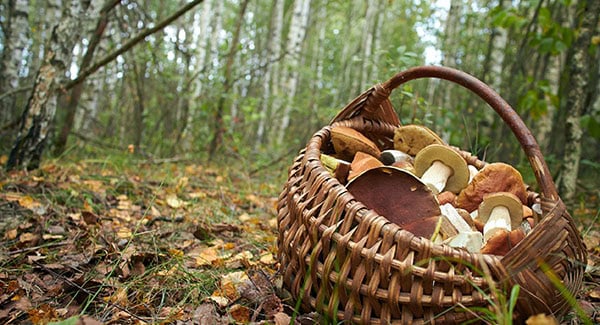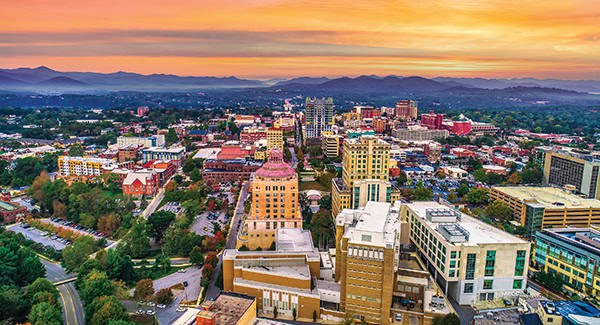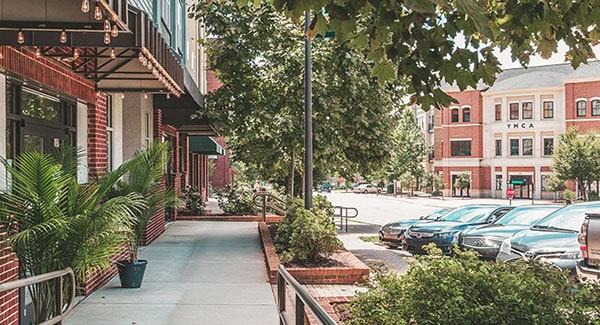
Last Updated on May 27, 2025
Professional gourmands and locally conscious eaters alike advocate for the health, economic, and culinary benefits of farm-to-table dining. In Western North Carolina, our abundant natural resources offer many opportunities to bring farm-fresh produce into our homes and restaurants. However, many locals are looking beyond the farm to enhance the quality of their dining experience and their quality of life.
Forest-to-table dining is gaining ground!
It’s no wonder people are taking to the woods to round out their home menus! The four-season temperate climate of the Blue Ridge Mountains, along with the area’s broad range of elevations, make our region one of the most biodiverse in the world. In addition to hundreds of amphibian, reptile, bird, and mammal species, our mountains are home to an estimated 4,000 species of plants, 2,000 species of fungi, and 500 species of mosses and lichens—many of which provided the main source of sustenance to native populations and early settlers prior to industrialization.
Are you interested in learning more about how to live off the land? Mushrooms offer a great source of protein and dietary fiber, making them a great addition to any meal. Here are the best sources for everything you need to know about mushroom foraging in and around Asheville:
What is mushroom foraging?
Mushrooming, mushroom foraging, and mushroom hunting are just a few terms to describe the activity of gathering mushrooms in the wild, primarily for food. Edible mushrooms have been collected from their natural habitats by indigenous communities around the world for millennia. Today, mushroom foraging is still widely practiced throughout northern and eastern Europe, East Asia, India, temperate Canada, and the United States.
Which mushrooms grow in WNC?
The Asheville area is a haven for mycophiles (mushroom lovers)! For one, our mountains offer a range of temperate climates and elevations, old growth forests, and protected lands that facilitate hundreds of mushroom species. In addition, many local mushrooms don’t have dangerous “lookalikes,” making it easier to be confident that what you’re foraging is, in fact, safe to eat.
Among the more sought after edible mushrooms across the region are:
- Chanterelle
- Chicken of the Woods
- Lactarius
- Lion’s Mane & Bear’s Head (AKA Hedgehog fungus)
- Maitake
- Morels
- Oyster
- Reishi
- Shaggy mane
- Turkey Tail
Who offers mushroom tours in Asheville, NC?
Knowledge is power when it comes to mushroom hunting! Even though there are far more safe mushrooms in our forests than not, one bad experience is too many. Luckily, the Asheville area is home to experts who are excited to share their knowledge about the fungus among us. Here are just a few Asheville mushroom tours:
Blue Ridge Chaga Connection
While primarily a retail foraged mushroom and mushroom product company, Blue Ridge Chaga Connection now offers 1.5–2-hour mushroom foraging tours. Bring the whole family to learn about a variety of poisonous, edible, and medicinal mushrooms, as well as many useful plants in our region.
Deep Woods Mushrooms
Have you ever wondered where mushrooms come from? Walk the Deep Woods Mushroom Farm to see the many stages of mushroom cultivation, from log preparation to fruiting, picking, and packing for market. Or take a three-hour walkabout to learn how to positively identify choice edible mushrooms, as well as the ones that are better viewed than stewed.
No Taste Like Home
Ready to go wild? No Taste Like Home’s three-hour Foraging Tour shows you how easy it is to enjoy “find dining.” After foraging for wild foods (mushrooms and more) you can enjoy a cooking demo and tasting of your finds from one of Asheville’s local restaurants. Suitable for all ages and abilities.
Wild Goods
Luke and Natalie of Wild Goods are passionate about sharing their knowledge, stories, and excitement for the natural world. Check out their class calendar for a variety of topics and formats, including Foray amongst the Funguses, a monthly foraging class through the summer months. Scholarships and work-trade arrangements are available.
How can I get more involved with local mushrooms?
In addition to tours, area mushroom experts offer classes, grow kits, tinctures, and other resources related to local mushroom hunting and cultivation. The Asheville Mushroom Club is a great source of knowledge, from guest speakers to forays into the wild to tasty recipes. Take your first steps toward a forage-to-table lifestyle!
Find a home in Asheville, NC!
Great mushroom foraging isn’t the only thing we love about living in Asheville! With a population of 90,000+, Asheville is the largest city in both Buncombe County and Western North Carolina. Asheville serves as the area’s economic and cultural nerve center in many ways, including as a hub for education, healthcare, local arts and crafts, entertainment, and innovative takes on traditional food and drink. The four-season temperate climate with average snowfall of only 13 inches makes year-round living easy, and the broad range of elevations and corresponding climates and plant growth (both in town and around the area) make it one of the most biodiverse in the United States and the world.
Does that sound like the perfect lifestyle for you? Search for homes in Asheville, NC.



